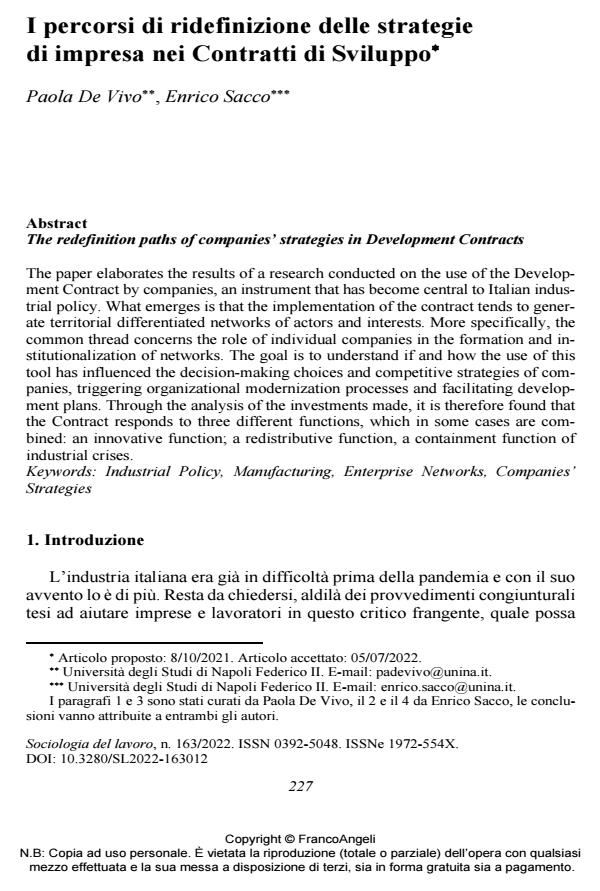The redefinition paths of companies’ strategies in Development Contracts
Journal title SOCIOLOGIA DEL LAVORO
Author/s Paola De Vivo, Enrico Sacco
Publishing Year 2022 Issue 2022/163
Language Italian Pages 22 P. 227-248 File size 262 KB
DOI 10.3280/SL2022-163012
DOI is like a bar code for intellectual property: to have more infomation
click here
Below, you can see the article first page
If you want to buy this article in PDF format, you can do it, following the instructions to buy download credits

FrancoAngeli is member of Publishers International Linking Association, Inc (PILA), a not-for-profit association which run the CrossRef service enabling links to and from online scholarly content.
The paper elaborates the results of a research conducted on the use of the Devel-opment Contract by companies, an instrument that has become central to Italian industrial policy. What emerges is that the implementation of the contract tends to generate territorial differentiated networks of actors and interests. More specifical-ly, the common thread concerns the role of individual companies in the formation and institutionalization of networks. The goal is to understand if and how the use of this tool has influenced the decision-making choices and competitive strategies of companies, triggering organizational modernization processes and facilitating development plans. Through the analysis of the investments made, it is therefore found that the Contract responds to three different functions, which in some cases are combined: an innovative function; a redistributive function, a containment function of industrial crises.
Keywords: Industrial Policy, Manufacturing, Enterprise Networks, Companies’ Strategies
Paola De Vivo, Enrico Sacco, I percorsi di ridefinizione delle strategie di impresa nei Contratti di Sviluppo in "SOCIOLOGIA DEL LAVORO " 163/2022, pp 227-248, DOI: 10.3280/SL2022-163012